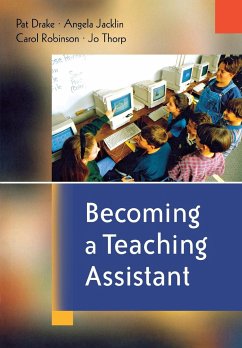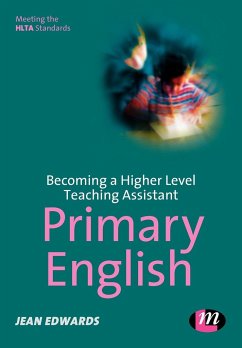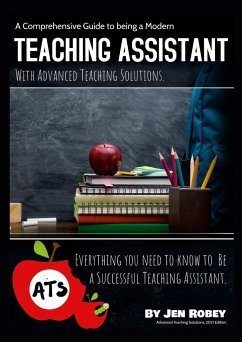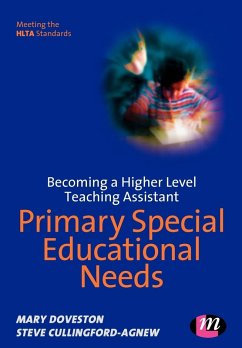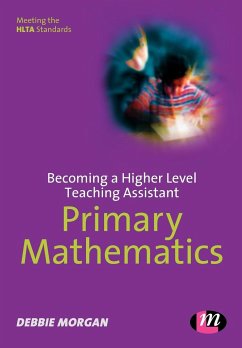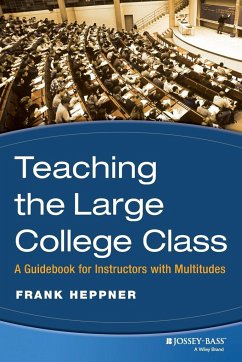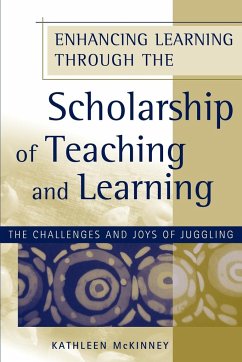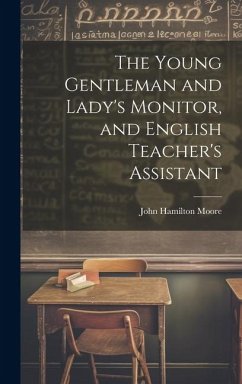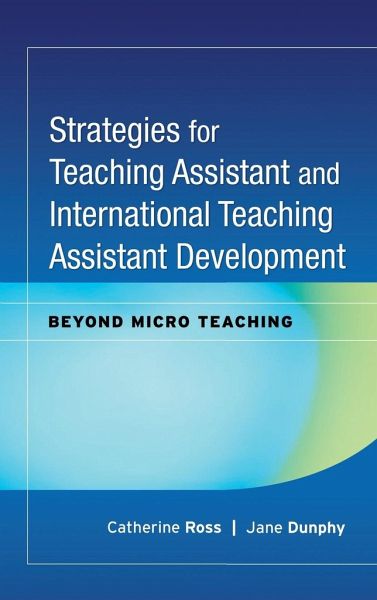
Strategies for Teaching Assistant and International Teaching Assistant Development
Beyond Micro Teaching
Herausgeber: Ross, Catherine; Dunphy, Jane
Versandkostenfrei!
Versandfertig in über 4 Wochen
40,99 €
inkl. MwSt.

PAYBACK Punkte
20 °P sammeln!
Strategies for Teaching Assistant and International Teaching Assistant Development Effective teaching assistants require relatively sophisticated communication skills. They must know how to present information in a digestible form, foster and manage classroom interactions, and conduct lab sessions. They are expected to engage appropriately in small talk and other rapport-building techniques. In addition, they require the sensitivity to be effective in office hours and to understand and handle diversity issues. Administrators, facilitators, and instructors must ensure that TAs receive the instr...
Strategies for Teaching Assistant and International Teaching Assistant Development Effective teaching assistants require relatively sophisticated communication skills. They must know how to present information in a digestible form, foster and manage classroom interactions, and conduct lab sessions. They are expected to engage appropriately in small talk and other rapport-building techniques. In addition, they require the sensitivity to be effective in office hours and to understand and handle diversity issues. Administrators, facilitators, and instructors must ensure that TAs receive the instruction, practice, and feedback necessary to succeed. Written for anyone who works with graduate students to support their teaching efforts in American research universities, this book draws on the extensive experience of professional educators who represent a variety of programs throughout the United States. They understand the common constraints of many TA development classes, workshops, and programs, as well as the need for motivating and sophisticated techniques that are, at the same time, practical and focused. Their contributions to this book have proven to be effective in developing the sophisticated communication skills required by TAs across the disciplines. Divided into two parts, this book first provides activities to foster confidence and teaching skills in novice TAs as well as strategies for more experienced TAs to refine their skills and develop as educators outside the classroom. The second part addresses the particular needs of ITAs with a variety of techniques to promote linguistic, cultural, and pedagogical ease in the American academy. Many of the 45 activities in the book include variations that make them suitable for wider or narrower audiences, or for repeated use with the same audience.



